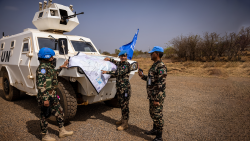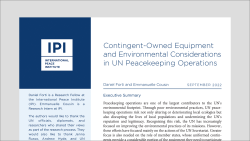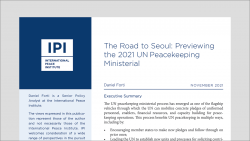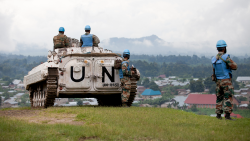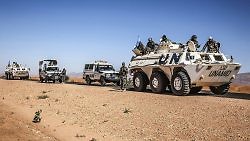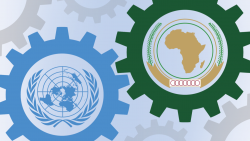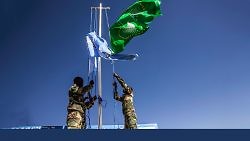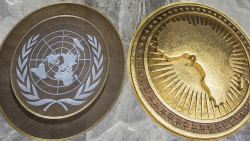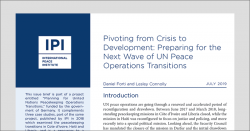
The UN secretary-general launched Action for Peacekeeping Plus (A4P+) in March 2021, three years after introducing the Action for Peacekeeping (A4P) initiative. A4P+ was conceptualized as a two-year implementation strategy for A4P that prioritizes urgent challenges facing UN peacekeeping. To monitor progress toward achieving these priorities, the UN has developed the A4P+ Plan and the […]
Read more
